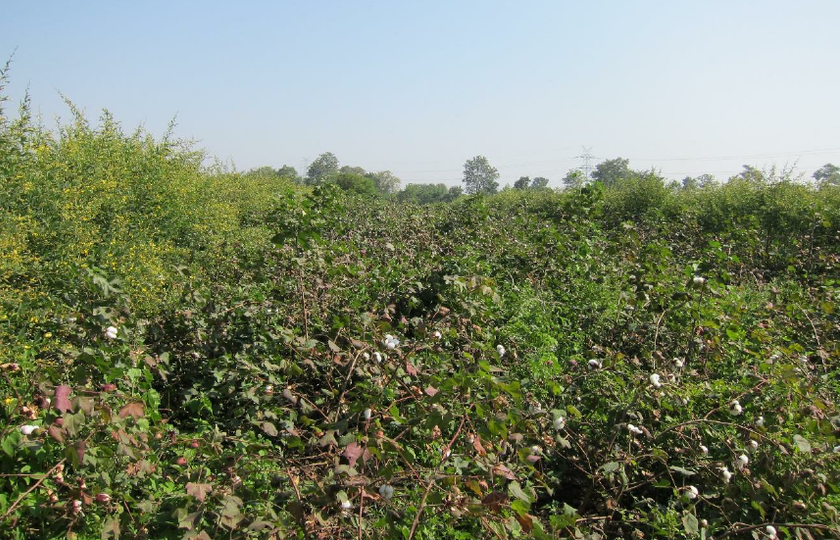- Taking two or more crops in the same area in different queues at the same time is called intercropping.
- Crops such as moong or urad can be grown with shallow roots and ready in a short time between the vacant spaces between rows of the cotton crop.
- Inter-cropping will also increase the additional profits and weeds will not be put on the space.
- Inter-cropping helps prevent soil erosion during rainy days.
- By this method, a variation of crops keeps the crop safe from diseases and pests.
- This method serves as an insurance against the failure of crops in more or less rain. Which avoids the risk of farmers, because even after a crop is destroyed, the yield of the supporting crop is available.
Cultivation of Inter crops in Cotton
Cotton crops are considered good for inter-cropping crops because cotton crops grow slowly in the beginning and remain in the field for a long time, which are considered good for other inter-cropping crops. The main objective of inter-cropping is to get maximum yield of cotton crop along with additional crop.
Inter-cropping for irrigated areas:
- Cotton + Chilli (1: 1 in a row ratio)
- Cotton + Onion (in the ratio of 1: 5 rows)
- Cotton + Soybean (1: 2 in row ratio)
- Cotton + linseed (as green manure) (in the ratio of 1: 2 row)
Inter-cropping for rainfed areas:
- Cotton + Onion (in the ratio of 1: 5 rows)
- Cotton + Chilli (1: 1 in a row ratio)
- Cotton + Peanut (in 1: 3 row ratio)
- Cotton + Moong (1: 3 in a row ratio)
- Cotton + soybean (1: 3 in row ratio)
- Cotton + Arhar (in 1: 1 row ratio)

